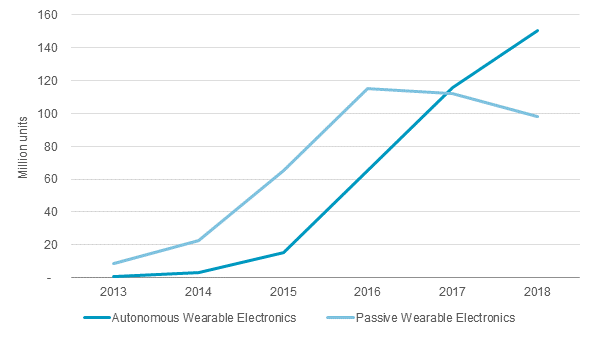Comment: What will your customers be wearing next?

Euromonitor travel and tourism analyst Angelo Rossini examines one of the most powerful trends in the travel and tourism industry, consumers using multiple devices such as PCs, smartphones, tablets and smart TVs simultaneously to get information and make bookings.
"The number of internet-enabled devices used by travellers is set to grow further in 2014, as it is expected to be a year of significant innovation, particularly in the field of wearable technology – like watches and glasses.
Keeping up with internet-connected devices is a challenge for travel companies. They need to build flexible systems so they can follow their customers moving from one device to another, making the most of these devices in terms of both bookings and customer service and therefore staying competitive.
In 2013, wearable electronics on sale were mainly "passive" devices, designed to collect data and relay it to another device for processing such as with health and fitness information.
At the end of 2013, however, the focus turned to "autonomous" wearable electronics that can be used for a range of tasks, include a built-in processor and have the ability to install apps.
Examples of these "autonomous wearable electronics" include the Sony SmartWatch and Samsung Galaxy Gear, already on sale, and Google Glass, expected to be introduced to the general public in 2014. There are also rumours about the possible launch of an Apple iWatch in 2014.
According to Euromonitor International’s Consumer Electronics research, wearable electronics technology is expected to go mainstream in 2016, with a forecast 180 million units sold globally, and 250 million units sold in 2018.
Global Volume Sales of Wearable Electronics by Type: 2013-2018
Source: Euromonitor International
These have significant potential for the travel and tourism industry although mainly with customer service rather than bookings through customer alerts or showing them information on tourist destinations and travel services.
For example, Expedia is currently working on the development of software for Google Glass, even ahead of its release to the general public, focusing on notifications for customers, concerning eg. flight delays and gate numbers.
The TripIt app for the Samsung Galaxy Gear helps travellers conveniently manage their travel itineraries and reservations, as well as check maps and weather conditions.
The Qunar app for the Samsung Galaxy Gear, meanwhile, is mainly focused on customer service, giving travellers access to their flight and hotel bookings, flight statuses and weather conditions, but it does also have booking functionalities, in particular for last-minute hotel deals.
Travellers have been empowered by the rise of online travel over the last years, as it provided them with more information and choice. Wearable technology gives them even more power, offering them "enhanced awareness" of all the information they need to have about their destination and travel services, in real time."
 United Kingdom
United Kingdom United States
United States Asia Pacific
Asia Pacific












































Dozens fall ill in P&O Cruises ship outbreak
Turkish Airlines flight in emergency landing after pilot dies
Boy falls to death on cruise ship
Unexpected wave rocks cruise ship
Storm Lilian travel chaos as bank holiday flights cancelled